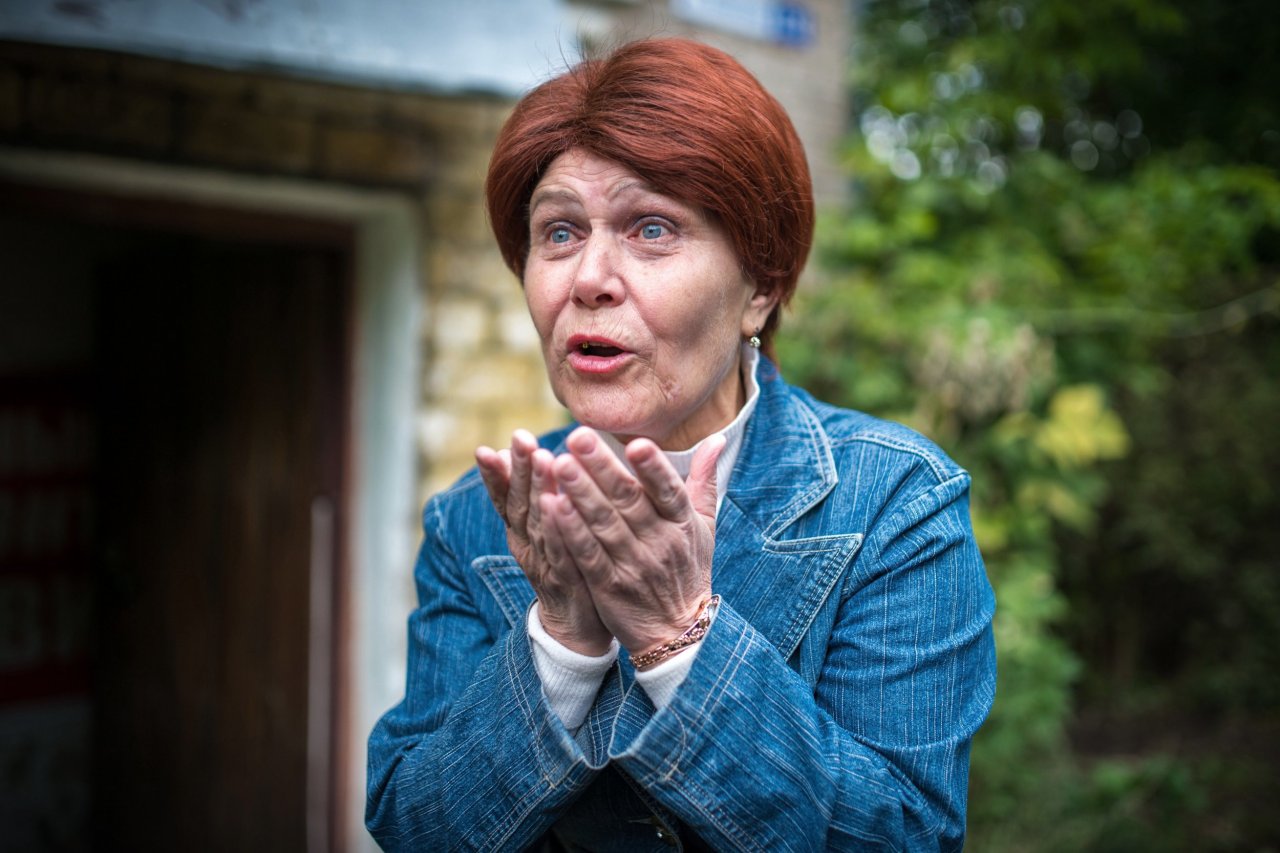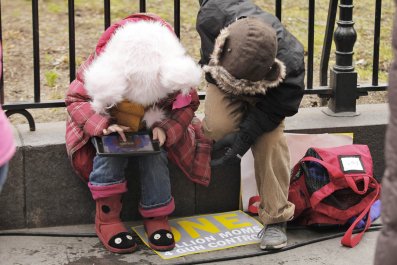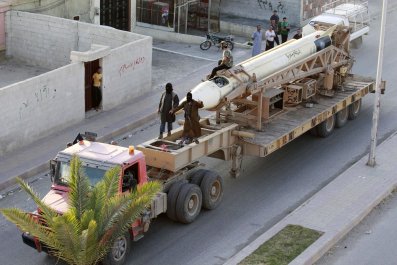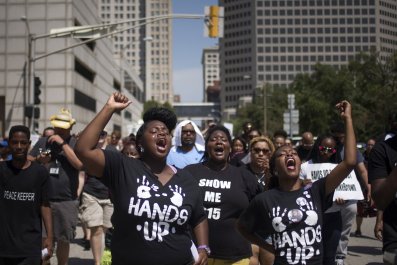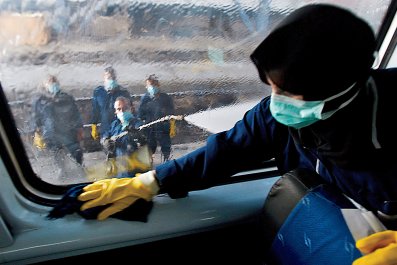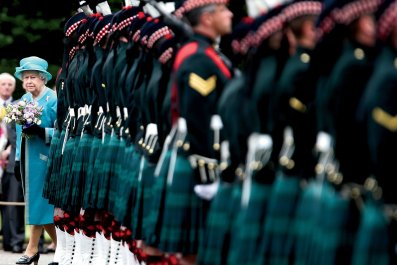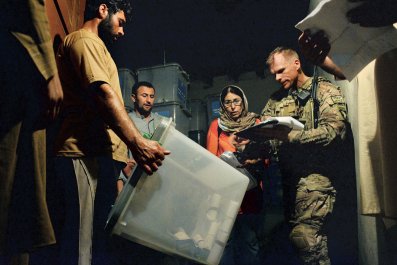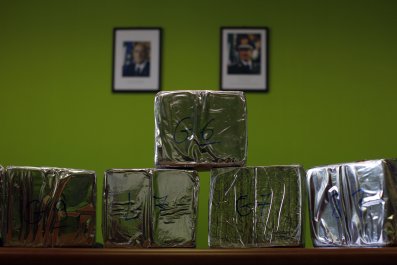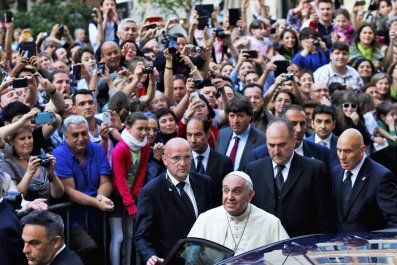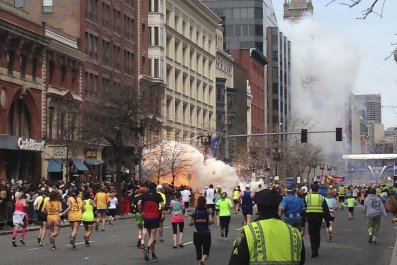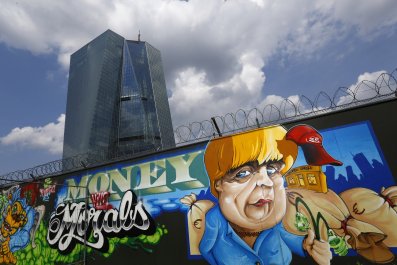Lyubov Maksimova's soldier son called his father from an unknown number last week. He told him he was involved in "training exercises" in the Rostov region – a Russian territory bordering Ukraine – and then swiftly hung up.
The telephone call came a day after Maksimova held a press conference, during which she demanded to know where her son was. At the time, Ilya Maksimov, 20, had not been in touch with his parents for 10 days. This was uncharacteristic. "He always took care not to alarm me.
He always called," says Maksimova, a resident of the Saratov region. "Then, suddenly, we have days of silence." When asked whether or not she believed her son had been sent to fight in Ukraine, she says: "It's all simply too much. I don't know what to think any more."
A growing number of people don't know what to think any more. While the Kremlin continues to deny that it has sent troops or military equipment to support the insurgency in southeast Ukraine, the assumption is that Russia has stepped up its participation in an undeclared shadow war in a neighbouring country.
Now families such as the Maksimovs are pushing for clear answers in what is becoming an increasingly murky operation.
For example, near the Russian town of Pskov, close to the border with Estonia, the graves of two paratroopers, who allegedly died fighting in Ukraine, have been stripped of identifying signs. Journalists attempting to investigate the graves have received death threats, while a local opposition politician, Lev Shlosberg, was beaten after publicising the paratroopers' mysterious deaths.
Valentina Melnikova, head of the Russian Union of Committees of Soldiers' Mothers, says the silence surrounding the Pskov case is deeply disturbing. "During the first and second Chechen wars, we had big groups of people approaching us, asking for our help in finding out what happened to missing relatives. But many parents of today's conscripts are not being at all proactive.''
Melnikova says she is particularly upset about the case of a young Russian mother from an unidentified region, who lost contact with her soldier husband two months ago. "We have been telephoning her for two months but she won't even give us the number of his division, so that we can investigate what happened. At this point what has she got to lose?"
According to Melnikova, a similar situation is unfolding in the Ryazan region around 200km west of Moscow, where 250 young conscripts may be sent to Ukraine soon. "There is one soldier who's married with a child – and obviously, he doesn't want to go," Melnikova says.
"Then there is one who managed to call his grandmother and tell her, 'I'm being sent to Ukraine'." Melnikova points out that the Ryazan soldiers were told that their metal identity tags – which, under normal circumstances, are used to identify dead and wounded personnel – and paperwork would be confiscated.
"This is all criminal, this is all against the law – against Russia's own law," Melnikova says. "More people need to ask for help – even if a soldier's dead. We will do everything we can to help, to sort the paperwork, and so on, to make sure the family's rights are protected."
Journalist, author, and Chechen war veteran Arkady Babchenko has observed what he believes to be both helplessness and apathy on the part of the Russian public in the face of their soldiers' involvement in the Ukrainian conflict.
"People are acting like it's 1937," says Babchenko, referring to the bloodiest year of the Stalinist Terror. "It's not but there is a fear that lives in people, planted by years of Putin's rule."
But Babchenko cautions against making sweeping judgments about Russian military families and the apparent apathy of some of them: "Let's say you have a military mortgage plan – you serve in the army for seven years while paying it off, and then you go missing," he says. "What is your wife going to do? If she speaks out, she could be left with nothing."
Babchenko says that overall, "slave-like" conditions in the Russian army have affected both soldiers and their families. He also has unconfirmed information that payouts for families of dead soldiers have increased significantly in Russia. "I'm not going to name the exact figure but it's big, especially for a small town like Kostroma,'' he says, referring to a town that saw nine of its local paratroopers inexplicably detained on Ukrainian soil recently. Much like Ilya Maksimov, these paratroopers told Russia's only independent news channel, Dozhd TV, that they expected to take part in training exercises in the Rostov region.
"Relatives of a dead soldier can probably buy an apartment with the compensation to which they are legally entitled. So you end up being forced to betray your relative's memory," says Babchenko.
Political scientist Catherine Schulmann, who has written extensively on how Russian president Vladimir Putin's political regime encourages apathy in society, ascribes families' silence to a simple survival tactic. "We have no right to blame the victims," says Schulmann, speaking specifically about the silent relatives of dead paratroopers. "We think that glory for fallen soldiers is important – but a widow in a small town, with a mortgage, with a child, what resources does she have to fight for that glory?"
Schulmann points out non-government organisations need to let the world know that Russian soldiers are being sent to fight. The authorities, for their part, appear to be catching on to the threat such NGOs pose in the face of the conflict with Ukraine: the St Petersburg branch of the Committees of Soldiers' Mothers was declared a "foreign agent" shortly after going public with the news that an estimated 100 Russian soldiers were killed on Ukrainian territory on August 13th.
According to Babchenko, the decline of independent media in Russia is also to blame for the disempowerment of soldiers' families in Russia. "We have this zombie television, telling everyone not to stick their necks out," he says, referring to Russian state TV's dominant role in shaping public opinion. Babchenko doesn't rule out the possibility that Russia's Federal Security Service has had "chats" with relatives of missing soldiers. "When the FSB talks to people – they, in turn, stop talking to everyone else," he says.
Back in the Saratov region, Lyubov Maksimova insists that nobody has tried to intimidate her since she began speaking out about her son's disappearance. But her wait continues. "As a mother, I feel bad for all of the boys caught up in this – Russian and Ukrainian. It is an unbearable anguish for both of our countries."



